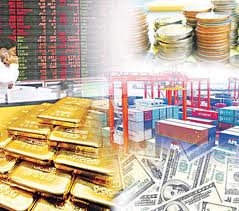BANGKOK, June 8 – The World Bank on Wednesday maintained a steady economic outlook for Thailand with 3.7 per cent of the Gross Domestic Product (GDP) projected as this year’s growth but warning that the country’s inflation is on the rise.
Frederico Gil Sander, a Bangkok-based World Bank economist, told a news briefing on Thailand’s economic prospects that the country’s economy this year will continue to grow at the rate of 3.7 per cent.

The Thai economy in the first quarter of this year expanded more than earlier forecast but growth in the second quarter was at a slower pace owing to effects of the devastating March 11 earthquake and tsunami in Japan.
The World Bank economist viewed that the Thai economy in the second half of this year will face some risk factors, including the European public debt crisis, China’s economic slowdown due to the ongoing tightening of its monetary policy, rising oil prices and domestic political stability after the July 3 general election.
However, the bank will revise its figure upward if the risk factors lessen.
Meanwhile, Mr Sander cautioned that the country’s inflation will be steadily rising given that the government will gradually lift its price-control measures and diesel subsidy scheme which capped the fuel’s price at Bt30 per litre (about US$1)
The economist said, however, that he believed that inflation is unlikely to cause price crisis as the Bank of Thailand could produce measures to keep inflation at bay.
In the meantime, the world’s leading financial institute projected that the 2011 global GDP to slow to 3.2 per cent, before edging up to 3.6 per cent in 2012, according to its Washington-based June 2011 edition of Global Economic Prospects.
Currently, global financial stability is confronted by rising oil and food prices which have negative consequences on the world’s economy, Hans Timmer, director of Development Prospects at the World Bank said in the bank’s latest report.
Mr Timmer explained that food price controls have negative impacts and results in spending a flood of money to subsidise prices in each country. He advised individual nations to proceed with food aid-related measures to support the poor, build food banks as well as not export food from some countries facing food shortages.
However, the commodity prices are likely to drop which will benefit the prices in each country.
In the East and Pacific region, the growth is projected to slow but remain strong, with GDP gains easing from 9.6 per cent in 2010 to 8.5 per cent in 2011.
The inflation in the region having reached 5.3 per cent in April 2011 remains a challenge for the regional economy, particularly in China and Thailand.
Mr Timmer urged the countries to solve domestic problems and to proceed with strict monetary and fiscal policies to tackle the inflation and the accelerating commodity prices.
The ongoing tightening of monetary and fiscal policies is projected to contribute to the projected slowing in growth toward more sustainable growth rates. (MCOT online news)




